- Issue 6 Pages 495-
- Issue 5 Pages 397-
- Issue 4 Pages 275-
- Issue 3 Pages 185-
- Issue 2 Pages 117-
- Issue 1 Pages 1-
- |<
- <
- 1
- >
- >|
-
[in Japanese]Article type: research-article
2018 Volume 49 Issue 3 Pages 185
Published: June 25, 2018
Released on J-STAGE: May 23, 2019
JOURNAL FREE ACCESSDownload PDF (534K) -
[in Japanese], [in Japanese]Article type: research-article
2018 Volume 49 Issue 3 Pages 186-187
Published: June 25, 2018
Released on J-STAGE: May 23, 2019
JOURNAL FREE ACCESSDownload PDF (571K) -
[in Japanese]Article type: research-article
2018 Volume 49 Issue 3 Pages 188-191
Published: June 25, 2018
Released on J-STAGE: May 23, 2019
JOURNAL FREE ACCESSDownload PDF (632K) -
[in Japanese]Article type: research-article
2018 Volume 49 Issue 3 Pages 192-193
Published: June 25, 2018
Released on J-STAGE: May 23, 2019
JOURNAL FREE ACCESSDownload PDF (536K) -
[in Japanese]Article type: research-article
2018 Volume 49 Issue 3 Pages 194-196
Published: June 25, 2018
Released on J-STAGE: May 23, 2019
JOURNAL FREE ACCESSDownload PDF (788K) -
[in Japanese]Article type: research-article
2018 Volume 49 Issue 3 Pages 197-200
Published: June 25, 2018
Released on J-STAGE: May 23, 2019
JOURNAL FREE ACCESSDownload PDF (644K) -
[in Japanese], [in Japanese], [in Japanese], [in Japanese], [in Japane ...Article type: research-article
2018 Volume 49 Issue 3 Pages 201-204
Published: June 25, 2018
Released on J-STAGE: May 23, 2019
JOURNAL FREE ACCESSDownload PDF (650K) -
[in Japanese], [in Japanese]Article type: research-article
2018 Volume 49 Issue 3 Pages 205-206
Published: June 25, 2018
Released on J-STAGE: May 23, 2019
JOURNAL FREE ACCESSDownload PDF (536K)
-
Japan Society for Medical Education, Post-graduate Medical Education C ...Article type: research-article
2018 Volume 49 Issue 3 Pages 207-211
Published: June 25, 2018
Released on J-STAGE: May 23, 2019
JOURNAL FREE ACCESSA community-based medicine program in the postgraduate clinical training system has been offered as a mandatory program since 2004. Training sites range from clinical attachments in rural/remote areas to public health centers in the city. The role of the program director is important for enhancing the community-based medical program and raising resident doctors. Unique training programs have been carried out, such as medical training in the afflicted area of the earthquake/Tsunami disaster area as well as an exchange program between Hokkaido and Kagoshima residents. The Japanese healthcare system is drawing global attention and local demand. Enrichment of the community-based medicine program is vital for the human resource development that makes the Japanese healthcare system innovative and sustainable.
View full abstractDownload PDF (780K)
-
Hiroyuki Sugo, Yuki Sekine, Ryosuke Ichikawa, Shozo Miyano, Ikuo Wata ...Article type: research-article
2018 Volume 49 Issue 3 Pages 213-218
Published: June 25, 2018
Released on J-STAGE: May 23, 2019
JOURNAL FREE ACCESSIntroduction: Conference presentations are a very instructive experience for doctors.Aim: The aim of this study was to evaluate residents' attitude toward conference presentations.Methods: A questionnaire-based survey was conducted on 22 residents at our hospital, regarding their experience with giving a conference presentation.Results: Of the 22 residents, 15 (68%) completed the questionnaires. 13 (87%) of them had experienced giving a presentation for the first time. Overall, 14 (93%) of the 15 residents thought the experience of giving a conference presentation was very instructive. 12 residents (80%) wanted to experience it again. On the other hand, a few residents requested that giving a presentation be made voluntary and not mandatory.Conclusion: The results of our study demonstrates that giving conference presentations would be a very valuable experience for young doctors. The experience of giving a presentation coupled with prior explanations about its instructive value could positively impact intrinsic motivation.
View full abstractDownload PDF (1017K)
-
Taichi Takeda, Taemi Nagaishi, Naoko Ono, Yuko TakedaArticle type: research-article
2018 Volume 49 Issue 3 Pages 219-222
Published: June 25, 2018
Released on J-STAGE: May 23, 2019
JOURNAL FREE ACCESSWe have conducted an active learning session for participants in various fields using a scenario in which university students encountered a great earthquake during a field trip. The program was unique because it not only gave participants an opportunity to simulate providing support, it also allowed them to simulate receiving support.
View full abstractDownload PDF (851K)
-
[in Japanese]Article type: research-article
2018 Volume 49 Issue 3 Pages 225-230
Published: June 25, 2018
Released on J-STAGE: May 23, 2019
JOURNAL FREE ACCESSDownload PDF (756K)
-
[in Japanese], [in Japanese], [in Japanese]Article type: research-article
2018 Volume 49 Issue 3 Pages 231-232
Published: June 25, 2018
Released on J-STAGE: May 23, 2019
JOURNAL FREE ACCESSDownload PDF (600K) -
[in Japanese]Article type: research-article
2018 Volume 49 Issue 3 Pages 233-234
Published: June 25, 2018
Released on J-STAGE: May 23, 2019
JOURNAL FREE ACCESSDownload PDF (567K)
-
[in Japanese]Article type: research-article
2018 Volume 49 Issue 3 Pages 235
Published: June 25, 2018
Released on J-STAGE: May 23, 2019
JOURNAL FREE ACCESSDownload PDF (538K) -
[in Japanese]Article type: research-article
2018 Volume 49 Issue 3 Pages 236
Published: June 25, 2018
Released on J-STAGE: May 23, 2019
JOURNAL FREE ACCESSDownload PDF (538K)
-
[in Japanese], [in Japanese]Article type: research-article
2018 Volume 49 Issue 3 Pages 237
Published: June 25, 2018
Released on J-STAGE: May 23, 2019
JOURNAL FREE ACCESSDownload PDF (546K)
- |<
- <
- 1
- >
- >|